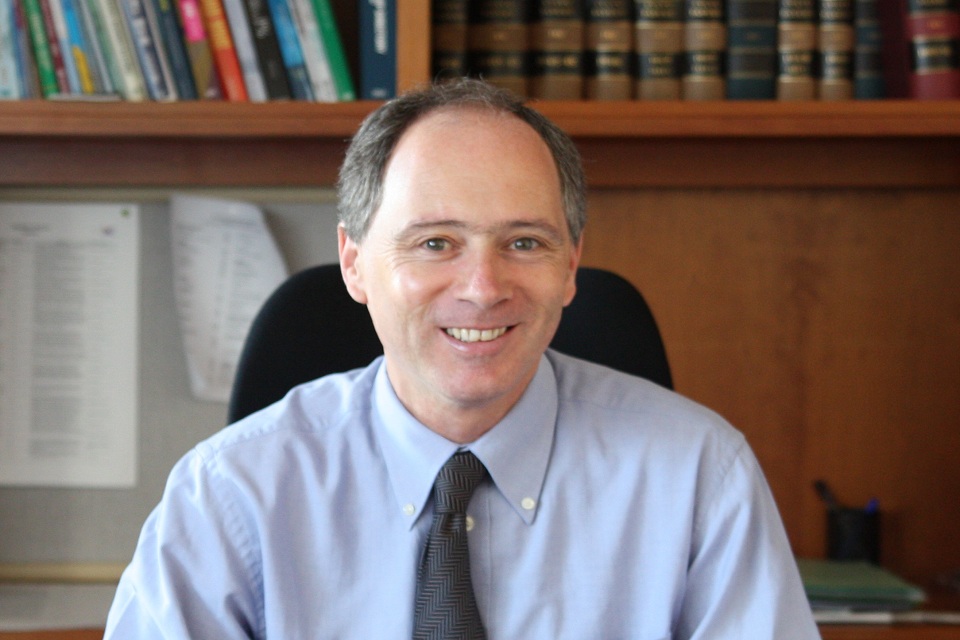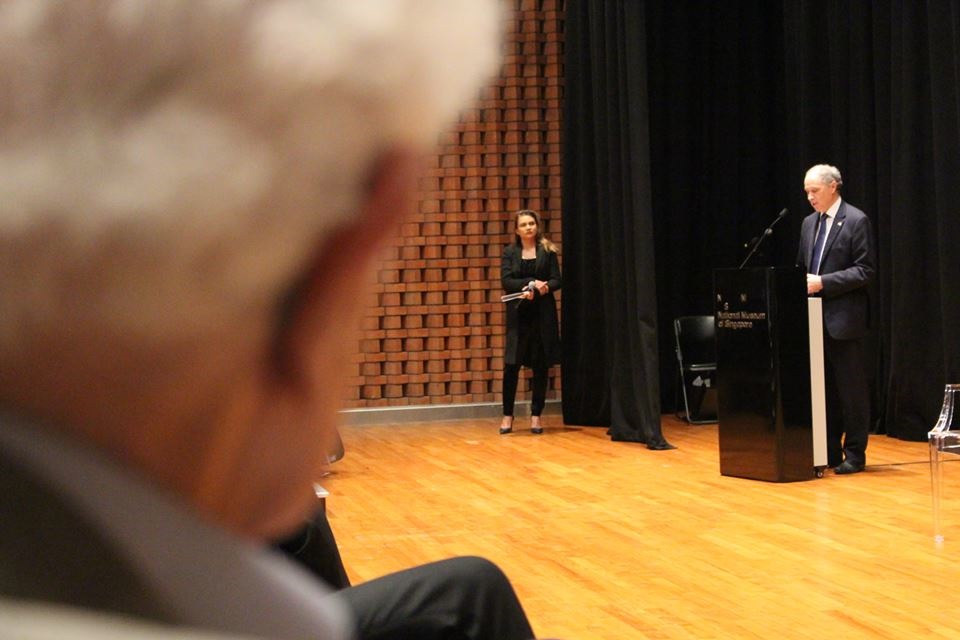Scott Wightman's speech at launch of the book '200 Years of Singapore and the United Kingdom'
British High Commissioner to Singapore, Scott Wightman, hopes the book will contribute to collective reflection that the bicentennial of the establishment of a trading post in Singapore by Raffles and Farquhar stimulated.

Minister Grace Fu, Minister for Culture, Community and Youth, Your Excellencies, my co-editor Prof Tommy Koh, distinguished guests, ladies and gentlemen:
I would like to begin by adding my thanks to all of you, but especially to the minister, for joining us here this evening and supporting this project. And like Prof Koh, I must thank, too, all of the contributors to this collection of essays. I’m very happy that some of you have been able to join us here today.
The authors of the essays are the people who have done the real work, drawing on their deep research and personal experience to help us tell the story - the good, the bad and the ugly - of a unique relationship. Prof Koh has explained to you some of the contents of the book and why we thought it would be interesting and useful to bring them together in one volume.
My personal hope is that the book and the individual essays will be seen as a constructive contribution to the collective reflection that the bicentennial of the establishment of a trading post in Singapore by Raffles and Farquhar has stimulated here.
It has been interesting for me to observe in the last 12 months how many different views there are in Singapore on the significance of the anniversary, on the impact of British rule and administration, on what it means to be Singaporean.
Not surprisingly, this has intensified since the turn of the year. I consider this robust discussion to be a thoroughly good thing. It is good that people should exchange views and debate such questions. It’s good that they should have different opinions.There are of course no right answers to the questions. There is no single truthful version of history. There are no uniquely correct interpretations of historical events. So it’s very healthy that people should be encouraged to question what they’re being told rather than meekly accepting the authorised version, as still happens in too many countries around the world.
These discussions and debates are more productive and are more useful if they are well informed. Hearsay, rumour and deliberate disinformation, whether on or offline, are the handmaidens of misunderstanding and prejudice. Ignorance and misrepresentation fan the flames of hatred and xenophobia. But thanks to the efforts of our contributing authors, I believe participants in the debate about how Singapore became what it is today will be better informed if they read this book.

HC Scott Wightman adressing the audience at the launch of "200 Years of Singapore and the United Kingdom".
I hope too that British readers of the book will gain a better understanding of the people, the forces and the events that have shaped modern Singapore and which help to explain what drives this remarkable place and motivates its citizens and leaders. They will see how Singaporeans took some of the institutions and approaches developed by the colonial administration and then adapted, updated and applied them, invariably much more effectively than their predecessors. The results are all around us and indeed embodied in the Singaporeans in this auditorium.
Too few people in the UK – and in Europe generally – are aware of what is happening in this part of the world of the pace of change, of the dynamism to be found throughout the region.Too many in the UK at least project on to Singapore their pre-conceived political views, without bothering themselves with the reality. I hope that in a small way this book may reduce that tendency.
In anniversary years such as this, it’s natural for us to look back, to rediscover and reappraise the past. That is what Prof Koh and I have tried to do in this book. But in my role as High Commissioner, my day job is to deal with the present and look to the future. And I’m glad to say that the present state of the bilateral relationship is strong. Whether it’s in the economic sphere, with over 4000 British companies with a presence in Singapore and with extensive Singaporean investment in the UK.
Or in science and innovation with so many research collaborations between our scientists it’s impossible for us to keep track of them all. Or in education with 7000 young Singaporeans studying in the UK, another 50000 studying in Singapore for British qualifications and more and more young Brits spending time at NUS or NTU or SMU as part of their studies. Or in defence and security, with a Singaporean regularly being selected as the top overseas student at our Staff Colleges and with four Royal Naval vessels visiting Singapore in the space of 12 months.
Yet while the relationship is strong, the potential is there for it to deepen further. And that is why our two Foreign Ministers, Dr Vivian Balakrishnan and Jeremy Hunt, launched our new SG-UK Partnership for the Future on 4 January during the Foreign Secretary’s recent visit to Singapore. Through this Partnership we can take our relationship to a new level. So while our shared history is rich – as I think we capture in this book – our shared future can be even brighter.
Thank you again to all of you for coming this evening. Thank you Minister. Thank you to the National Museum of Singapore for allowing us to use the facilities here. I feel it to be a particularly appropriate venue, not just because of the subject of the book but because my wife Anne has spent so many hours here as a docent, learning about Singapore’s history and sharing her knowledge with others, Singaporeans and foreigners.
It’s a happy coincidence that my parents are able to be here this evening and in true Academy Awards fashion I want to thank them for their love and support. I’m very grateful to everyone at SPH, above all to our editor Kelly Pang, for their support for the project. Thank you to my colleagues from Eden Hall who have helped arrange this event but more generally for the High Commission and British interests in Singapore.
Ladies and gentlemen, as I say in my Foreword to the book, I was deeply honoured when Prof Koh made me an offer I couldn’t refuse to co-edit this volume with him. Tommy, every one of my colleagues in the Diplomatic Corps has nothing but the greatest respect, admiration and affection for you as a legal scholar, an outstanding diplomat, and as a person. Honestly, it is one of the proudest moments of my professional life to see my name alongside yours on the cover of this book.
Thank you for giving me the opportunity. I hope you all enjoy the book.